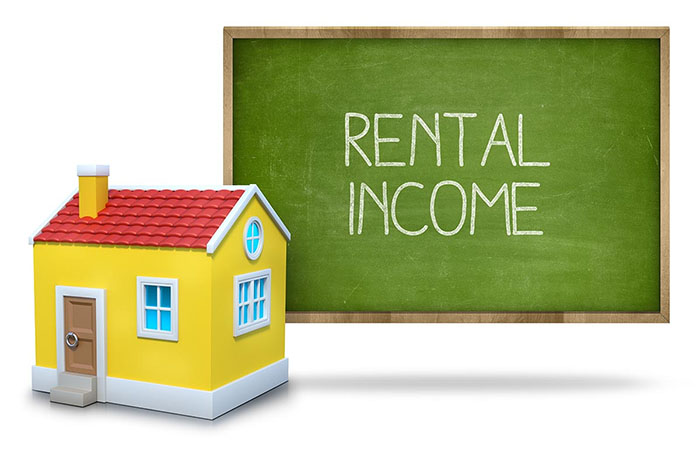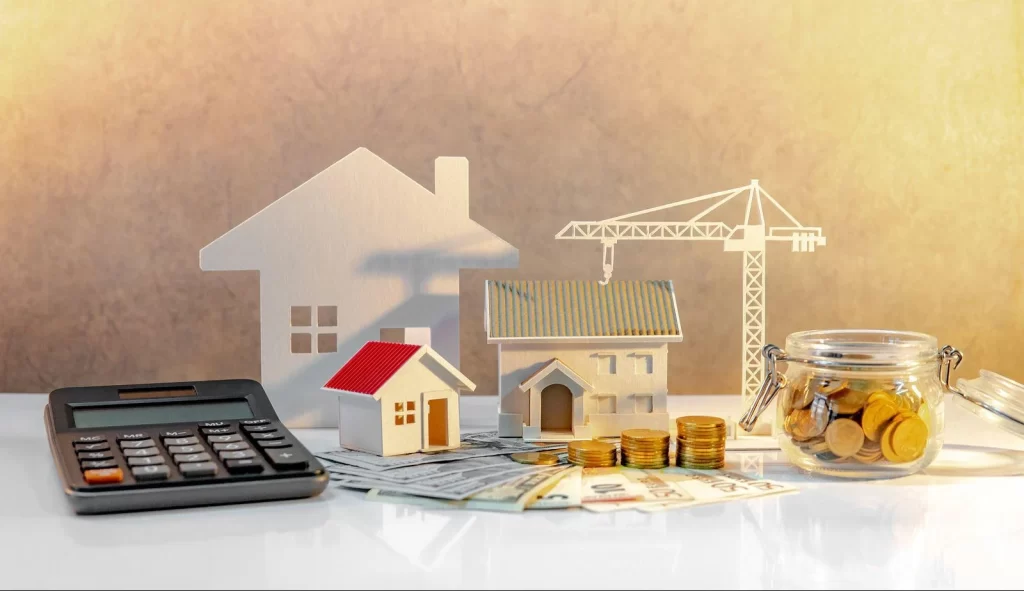Can I Deduct Mortgage Interest On Rental Property?
Converting Primary Residence to Rental Property Mortgage
September 29, 2022Best Mortgage Lenders for Investment Property Mortgages (including non-QM)
September 29, 2022It makes financial sense to utilize all of the available tax incentives if you’re considering purchasing a property for vacations, rental income, or a potential retirement residence. After all, you can dramatically lower the cost of having the property by claiming tax deductions for mortgage interest, real estate taxes, and rental charges.
The Mortgage Interest Deduction was reduced due to the Tax Cuts and Jobs Act (TCJA), among other changes to how tax deductions operate. The mortgage interest deduction is a tax break for homeowners that occasionally applies to real estate used as a rental property. You can deduct certain expenses from your taxable income if you own rental property and receive rental revenue from it. One of them just so happens to be mortgage interest.
Even with these modifications, beneficial tax incentives can lower the cost of owning a rental property. Here is a summary.

Mortgage Interest Deduction
You can use the mortgage interest deduction to lower your taxable income by the total amount of mortgage interest you paid during the tax year. As long as the debt is connected to a qualifying primary or secondary house up to $750,000, loans used to purchase, construct, or improve the property are eligible for this deduction. In addition, before December 16, 2017, borrowers who took out a mortgage loan are eligible to deduct interest on the principal up to $1 million.
Unfortunately, the mortgage interest deduction isn’t available for investment properties; nevertheless, by completing Schedule E on your tax return, mortgage interest can be written off as a business expense to reduce taxable income.
Here’s how you could write off mortgage interest for rental property as a business expense: say you borrowed $350,000 to pay $500,000 for a rental property. Let’s say that the interest for the first year of the loan is $15,000. If your rental property generates $50,000 in yearly rental revenue, you can deduct $15,000 for mortgage interest, bringing your taxable rental income down to $35,000 instead.
Each year, your lender should provide you with Form 1098, a breakdown of your annual mortgage interest payments.
What about Expenses Incurred When Obtaining a Mortgage?
Any costs you incurred to secure the mortgage on your rental property are not deductible, but you can include them in your cost basis in the asset. Along with the property, they are also depreciable. These expenses include:
- Legal fees
- Mortgage commissions
- Surveys
- Appraisal
- Title insurance
- Recording fees
- Charges for installing utility services
- Transfer taxes
- Taxes that the seller is behind on, but that you agree to pay, mortgage fees, upgrade or repair costs, and sales commission.
Common Deductible Interest Payments
The use of interest deductions is not just for mortgages. Here are some typical interest payments that rental property owners can deduct:
- Interest on the mortgage used to purchase the rental property
- Interest on the mortgage was used to upgrade the rental property.
- Interest is charged on credit cards used for rental activity purchases or services.
- Interest on personal loans obtained to buy goods used in the rental industry
Mortgage Interest Deduction Limitations
The amount of company interest expenses you can write off has some restrictions. The “section 163(j) limitation” was enacted in 2018 and imposed certain restrictions. This caps a taxpayer’s annual business interest deductions at the sum of:
- 30% of the taxpayer’s adjusted taxable income for that year
- The taxpayer’s interest income from the business that year
- The floor plan finance interest for that year
Only up to 30% of all enterprises’ adjusted taxable revenue can be deducted for interest payments for the last three years or an average gross receipts of $26 million (inflation-adjusted) or higher. However, by submitting an election with their tax return, rental property owners who make more than this can opt out of this and deduct all their interest costs.

Other Types of Deductions for Rental Properties
If you own a rental property, you can deduct more than just mortgage interest. Added deductions include:
- Property taxes
- Depreciation
- Repair and maintenance costs
You may also write off regular costs for running and maintaining the property. These cover insurance, utilities, marketing, travel costs, and supplies needed to keep the property up and running.
However, you cannot deduct costs incurred to renovate the property. However, the year you completed the upgrades or added the furnishings to your house, you can claim a part of these expenses utilizing Form 4562.
Consider having a conversation with a seasoned tax expert to go over your specific circumstances if you still have concerns about whether costs for your rental property are deductible.
Deducting Interest on Rental Property
Generally speaking, you are permitted to deduct interest on money borrowed for investment or business purposes, including when you are a landlord. The most typical deductible interest payments made by a landlord are:
- Payments of mortgage interest to banks and other financial institutions on loans used to purchase a rental property
- Payment of mortgage interest to financial institutions on loans used to upgrade the rental property
- Credit card interest on purchases made with rental activity-related items or services
- For any item utilized in a rental activity, personal loans.
Keep in mind that you may only deduct interest paid on loans used to buy or upgrade rental properties. In addition, you cannot deduct principal payments or your payback of borrowed funds. Typically, the principal is added to the property’s basis and depreciates over 27.5 years.
For instance, Ken takes out a $ 10,000-second mortgage on his rental home to rebuild the kitchen. This is a loan for house improvements. There is no tax deduction for the $10,000 loan sum. Instead, it is included in Ken’s home’s base and then depreciates over 27.5 years. Ken’s loan interest payments are tax deductible.
Deducting interest on loans used to buy or improve a rental property is subject to specific regulations. (Learn more about the numerous tax deductions available to rental property owners.)
Interest on Loan Proceeds Kept in the Bank
The interest you pay on loan profits you maintain in the bank is not deductible as a rental expense. Only when you use the money for your rental activity will you start deducting your rental interest. In the best-case scenario, you might be able to deduct the interest you pay on money kept in the bank as investment interest. This is because cash stored in the bank is considered an investment.
Interest on Money You Don’t Legally Owe
You can deduct only interest on the money you lawfully owe. In addition, you may write off only your portion of the total interest paid or incurred if you are only partially responsible for a loan.
As an illustration, Sally, Sandra’s daughter, and Sandra jointly own a rental home. The deed bears both names, but the mortgage only bears Sally’s name. Sandra cannot deduct any interest she pays because she is not legally responsible for the mortgage; only Sally is eligible for this deduction.
Interest Paid Through a Second Loan
If you take out a second loan, an advance, or any other loan-like arrangement from the first lender, you cannot deduct the interest you pay on that money. However, once you begin making loan payments on the new loan, you can deduct the interest expenditure. This is because you pay the interest on the new loan first and then the principal when you make a payment.
Example: To pay for repairs to bring his outdated rental building up to code and prevent a condemnation, Phil secures a $20,000 high-interest, short-term loan from the Fame Finance Company. Phil personally guarantees the loan. However, he misses payments on his loan. He gets a second loan from Fame for $5,000, backed by his home, to prevent Fame from seizing his bank accounts or personal belongings. He utilizes the proceeds of the second loan to settle $5,000 in past due payments on his initial Fame loan. The $5,000 payment, which is almost entirely made up of interest fees, is not considered an interest payment that can be deducted. Six months later, Phil pays back the $5,000 loan with interest. He can deduct the interest he pays on this loan.

Expenses to Obtain a Mortgage
Any costs you incur to acquire a mortgage on your rental property cannot be written off as interest. Instead, these costs are included in your basis in the property and subject to the same depreciation as the asset itself. These basis modifications include:
- Mortgage commissions
- Recording fees
- Surveys
- Transfer taxes
- Abstract fees
- Charges for installing utility services
- Legal fees
- Title insurance, and;
- Any amounts the seller owes that you agree to pay, such as back taxes or interest, recording or mortgage fees, charges for improvements or repairs, and sales commission.
Interest in Construction Loans
The interest you pay before and after construction on a rental property is completed may be written off as an operating expense. However, you cannot write off the interest you paid while the project was being built. Instead, this expense must be applied to your property’s basis and written down over a period of 27.5 years.
Loans on Rental Property Used for Non-Rental Purposes
You are permitted to take out a loan against your rental property and put the money to use otherwise. If you do this, you cannot deduct the loan interest as a rental expense. What you do with the money determines whether it’s deductible at all and how much:
- Personal purposes. Except for interest paid on some types of home mortgages and interest on student loans, personal interest is not tax deductible. If you use the loan funds to purchase a personal item, such as a trip or new appliances for your home, you are not entitled to a deduction.
- Investment purposes. If you utilize the loan for investments, such as buying stocks, bonds, or other investments, you can be eligible for a deduction. Investment interest is deductible as a personal item. However, only investment income is eligible for a deduction for investment interest. As a result, you cannot deduct anything if you have no investment income. You cannot deduct the excess if your interest costs exceed your investment income. If you have enough investment income in the future, you must carry it forward to use it as a deduction.
- Business purposes. Business interest is fully deductible as an expense for your company in the year it is paid. If you use the loan proceeds for a purpose other than renting out residential property, such as borrowing money on your rental property to buy tools for your construction business, you can deduct the interest.
Mortgage Interest Deduction based on the use of your Rental Property
The rules are more difficult if you rent out the house for a significant portion or all of the year. The distinction between personal and rental use is what counts. For example, you can’t claim the mortgage interest deduction if the IRS considers the house an investment property. Still, you can deduct mortgage interest as a business expense to reduce your rental revenue.
One of three categories will apply to how you use the property:
Use often, rent rarely
If you rent your house for 14 days or less during the tax year, you are exempt from reporting rental revenue to the Internal Revenue Service (IRS). Since the home is a personal residence, you cannot deduct costs associated with renting it out, such as utilities and advertising. However, as with any other home, you can write off mortgage interest and property taxes. 4 Additionally, the home will be classified as a personal residence rather than an investment property should you decide to sell it.
This law still holds true even if you charge $10,000 a night to rent your house. The money is exempt from gross income inclusion under Section 280A(g) of the Internal Revenue Code if you rent the house for fewer than 15 days annually.
Use rarely, rent often
If you rent out your home for more than 14 days a year and use it for no more than 14 days or 10% of the days it’s rented, it is considered a rental property, not a personal residence.
You can write off rental charges such as mortgage interest, property taxes, insurance premiums, property manager fees, utilities, and depreciation because the house is a business. However, you must disclose any rental income; your tax bracket will apply to how much of that income is taxed as regular income.
It should be noted that days spent repairing or maintaining the property do not count as days for personal usage. So, if you stay at your property to repair, you may exceed the 14-day limit. Plan to keep receipts as proof that you were performing maintenance on those days by documenting your activities and keeping them.
You must typically divide your total expenses between personal and rental use based on the days your property was used for each purpose if you use it for personal and rental reasons.

The Tax Benefits of Mortgage Interest Deduction on a Rental Property
Owning a rental property has financial benefits and tax benefits. After direct expenses, insurance, and property taxes, you should have rental revenue. You can use a depreciation deduction to reduce the taxes you owe on that income. Then there is the necessary deduction for mortgage interest.
Most business owners share these tax benefits, but the specifics can vary slightly at tax time. For example, schedule C is typically filed by self-employed business owners, while owners of rental properties file Schedule E. Therefore, slightly different guidelines are in effect.
Owning a rental property has various tax advantages, including deducting depreciation, mortgage interest, and other business-related expenses. In addition, significant tax advantages are provided by the mortgage interest deduction for rental properties. Here’s how it functions with a $325,000 example home and a $260,000 loan.
Let’s say that the first year of the loan would see a total interest payment of about $16,000. If the owner’s rental revenue is $36,000, deducting $16,000 for mortgage interest lowers their taxable rental income to $20,000, which is a sizable decrease.
The Internal Revenue Service is successfully assisting landlords to maintain real estate while it increases, allowing them to benefit from a positive cash flow while having lower tax obligations.
Mortgage interest is not the only type of deductible interest. As long as the associated costs are for rental activities other than purchasing, constructing, and improving your rental units, whatever loans you take out (and even interest on credit cards) are eligible.
The Bottom Line
If it is financially feasible, owning a rental property can be an excellent investment for holiday or rental purposes and a suitable principal residence after retirement. However, home ownership comes with a hefty price tag, from the mortgage and taxes to the upkeep and repairs. Therefore, before taking the plunge, it’s to your best advantage to educate yourself on the tax ramifications of second-home ownership. If you need assistance or clarity, consult a seasoned tax professional at Aurum and Sharpe to get started.
Mortgage Rates
DSCR Mortgage: 7.375%
Commercial Mortgage: 7.5%
Single family, Condo Investment Property: 7.375%
Portfolio of Residential Homes: 7.5%
Calculate Your Monthly Payment
Mortgage Information
Monthly Payment
Principal and Interest: $0
Total Monthly Payment: $0


